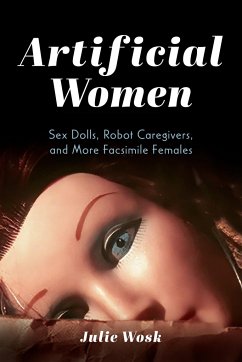"Artificial Women confronts age-old perceptions of women as empathetic caretakers, compliant sex workers, nurturing mothers, and dutiful daughters as well as preconceptions of artifice and authenticity in a new age of robotics technology. Envision the ability of a simulated woman to be her own Pygmalion through technology. She can reinvent and enliven herself with ease. She can provide physical and emotional companionship and fulfill the role of caretaker without similar needs of her own. Portrayals of female robots in film and literature reveal a burst of fascination with simulated females who appear as sexual partners, healthcare aides, artificial friends, and even virtual duplicates of deceased friends and family. These robots are wide-ranging, including AI-endowed robots and dolls, virtual assistants like Alexa and Siri, and real or imagined female robots whose purpose is to assist. While some functional robots are in development stages, filmmakers, television writers, novelists, and playwrights are already living in an exciting world where these simulated females are fully in play. The simulations are becoming more inclusive with a diversity of body types, races, and ethnicities. With increasingly lifelike simulations comes increasingly provocative questions. Will female robots seem superior to real women and disrupt human relationships? Is a simulation of empathy helpful or disruptive? Do gendered robots reinforce or upend conventional notions about women's roles? Will they seek their own chance to be free?"--
Hinweis: Dieser Artikel kann nur an eine deutsche Lieferadresse ausgeliefert werden.
Hinweis: Dieser Artikel kann nur an eine deutsche Lieferadresse ausgeliefert werden.








